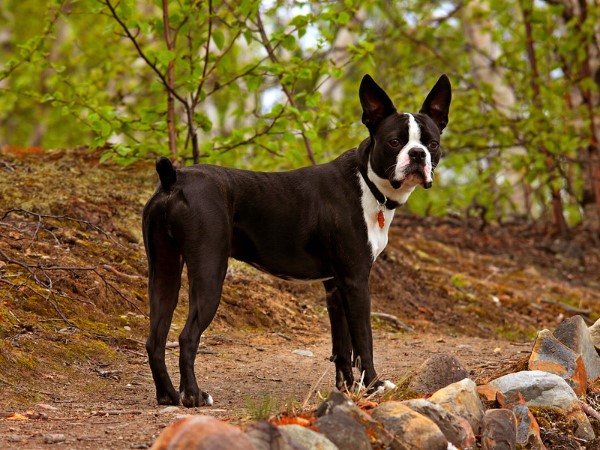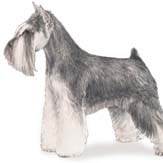Common Reasons for Surrender
Boston Terriers often find themselves in rescue through no fault of their own. Families move and cannot take them with them, often because the place to which they are moving doesn’t allow pets, the leading cause of a Boston’s surrender.
Pros
Sweet dogs that love and shower affection on people, Boston Terriers are companion animals that are instinctively in tune with their humans’ emotions. Bostons want to be by their humans’ side all the time and enjoy giving kisses.
Cons
The personality of the Boston Terrier varies from one dog to the other. Be sure to spend some time with a dog before you decide to adopt. Some Bostons are hyper, which generally starts to calm down as they approach five or six years of age, and most share a stubbornness gene. Bostons must have a high quality diet or you’ll have to deal with bouts of gas, the likes of which can clear a room. While older children can be taught to handle this dog, the Boston Terrier is not a suitable companion for small children. Parents need to properly supervise the younger child and the dog together.
Diet
Avoid the grocery store when purchasing food for your Boston. Instead, go to the pet store and find a high quality premium food that is grain-free. Opt for food and treats made in the United States that do not contain meat by-products. A high premium food will keep your dog’s coat healthy and shiny and your home smelling fresh—Bostons often have a problem with gas if they don’t eat the right foods.
Boston Terriers often love vegetables such as baby carrots and green beans, the latter of which are generally used when a dog needs to lose weight.
Exercise
To keep your Boston at a healthy weight, make sure he gets plenty of time to run around in the yard each day or take him for a walk daily. As with most breeds, a younger Boston typically has much more energy to expend than an older one.
Possible Health Issues
Generally a hardy breed, Bostons can have problems with gas if they are not fed a proper diet.
Grooming
Grooming a Boston Terrier requires little time and effort. Many people, in fact, prefer Bostons because they are clean dogs with no smell and short hair. Because they don’t shed much, all your Boston will need is a regular bath and nail trims. Keep an eye on your Boston’s ears to make sure they are always clean.
Training
Stubborn but intelligent, Bostons tend to learn very quickly, which will make your job much easier, provided you use positive reinforcement. Generally, training a Boston is fairly easy, and you’ll likely find your Boston wants to do tricks. A Boston’s most important goal is to please his humans, the predominant reason training typically goes rather easily.
Entertainment
Young Bostons have an abundance of energy and need a way to expend it. Regular walks and room to romp in a yard, if you have one, are both ideal ways to keep your dog entertained. If you don’t have a yard, take your Boston to the nearest dog park or to a fenced-in area to give him enough room to run. Because of their intelligence, some Bostons also enjoy agility training.
We want to thank Boston Terrier Rescue of South Carolina for help with this profile.








